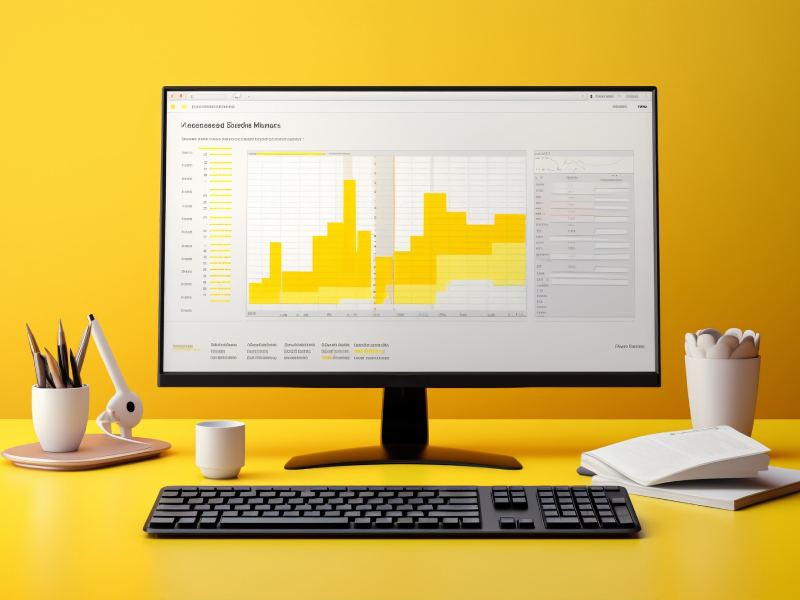Data-driven marketing in a post-pandemic world
Accelerated digital transformation due to COVID-19
The COVID-19 pandemic accelerated the shift to digital, with eCommerce experiencing growth that would typically take a decade, compressed into just a few months. This surge in digital interactions led to an exponential increase in customer data, encompassing volume, quality, speed, and diversity. Businesses are thrust into a new era where understanding and engaging with customers through digital channels have become a major priority.
Marketers have to handle vast data collections
Marketers find themselves navigating a sea of data, where the traditional methods of customer engagement are no longer sufficient. The challenge lies in more going beyond simple data collection; its focus is now more on making sense of it—transforming it into actionable insights that could drive personalized marketing strategies. This process requires a profound shift in how companies approach marketing, with a focus on leveraging technology to interpret and act on data in real time.
The need for advanced technological solutions
The transition to a data-driven approach demands tools that can process and analyze data at an unprecedented scale. Marketers need solutions that can provide a holistic view of the customer journey, integrating data from various touchpoints to create cohesive, personalized marketing campaigns.
Modern marketing’s tech challenge
The shortcomings of traditional campaign management tools
As the market dynamics have shifted, the limitations of traditional campaign management tools become more obvious. These tools are designed for a slower-paced, less complex marketing environment and struggle to keep up with the demands of a data-rich, fast-paced digital world.
Marketers find themselves constrained by systems that are slow to integrate new insights, hindering their ability to respond swiftly to market changes.
Growing demand for speed and agility
A report by the CMO Council highlights a pressing issue – the slow pace at which insights are transformed into action. With nearly half of marketers expressing frustration over the sluggishness of this process, the need for more agile, responsive tools is clear. Marketers require technologies that shorten the gap between gaining insights and implementing campaigns, enabling them to act on opportunities promptly.
Transitioning to data-driven technologies
To address these challenges, businesses are turning to advanced technologies tailored to the complexities of modern marketing. These tools are designed to process vast datasets, extract meaningful insights, and facilitate the rapid execution of marketing strategies. The shift here is towards systems that adapt to the dynamic nature of customer data, providing marketers with the agility to modify campaigns in real-time based on emerging trends and insights.
The strategic value of CDPs
Omnichannel marketing with CDPs
Customer Data Platforms (CDPs) have become of central importance in global omnichannel marketing. Offering personalized, real-time responses across various customer touchpoints, CDPs empower marketers to deliver a cohesive and customized experience to their audience.
CDP platforms address the challenges posed by older systems, which often silo data, hindering the creation of a comprehensive customer view.
Unifying customer data for actionable insights
One of the primary benefits of CDPs is their ability to consolidate data from multiple sources into a single, coherent customer profile. This unified view enables marketers to generate actionable insights, driving both inbound and outbound marketing efforts with greater precision. Having a centralized data repository helps businesses ensure that their marketing strategies are informed by the most current and comprehensive customer information available.
CDP impact and industry growth
Growth trajectory of the CDP industry
The CDP sector has shown resilience and adaptability, with projections indicating a revenue increase to $1.55 billion in 2021, a 20% growth from the previous year. This expansion reflects the growing recognition of the value that CDPs bring to the marketing technology suite, particularly in enhancing customer-centric, data-informed marketing practices.
CDPs as a response to market demands
The growth of CDPs is a direct response to the market’s demand for more sophisticated, data-oriented marketing solutions. As businesses strive to meet the heightened expectations of modern consumers, the ability to quickly adapt and personalize marketing efforts based on real-time data has become indispensable.
CDPs offer the agility and depth of insight required to meet these demands, positioning them as a key component in the future of marketing technology.
The future outlook for CDPs
The trajectory for CDPs indicates more than simple revenue growth – but more an expansion in their application and influence within marketing. As organizations continue to navigate the complexities of customer data and engagement, the strategic deployment of CDPs will likely play an increasingly prominent part in shaping effective, responsive marketing strategies – pointing to a future where data-driven, customer-focused approaches are the norm.
Key takeaways – CDPs and future-ready businesses
As businesses worldwide adapt to the ever-changing digital environment, the role of CDPs in crafting meaningful, personalized customer experiences becomes increasingly pronounced.
Centralizing data for deeper customer insights
CDPs offer a powerful solution for marketers aiming to transcend traditional marketing limitations, providing a centralized platform for gathering, analyzing, and activating customer data. This consolidation allows businesses to craft marketing strategies that are data-informed, agile, and adaptable to the dynamic preferences of their audience.
Driving marketing success in the digital age
The projected growth of the CDP industry hints at a broader shift in marketing paradigms—from a product-focused approach to one that places the customer at the core. By leveraging the robust capabilities of CDPs, businesses can support their engagement strategies, foster loyalty, and ultimately drive growth in a competitive digital marketplace.
Preparing for the data-driven future
Companies that embrace CDPs will find themselves better equipped to navigate the complexities of modern marketing, staying ahead of trends and delivering experiences that resonate with their customers.
As we look ahead, the importance of CDPs in the marketing technology stack is set to increase, reflecting the growing emphasis on data-driven decision-making and real-time customer engagement.




